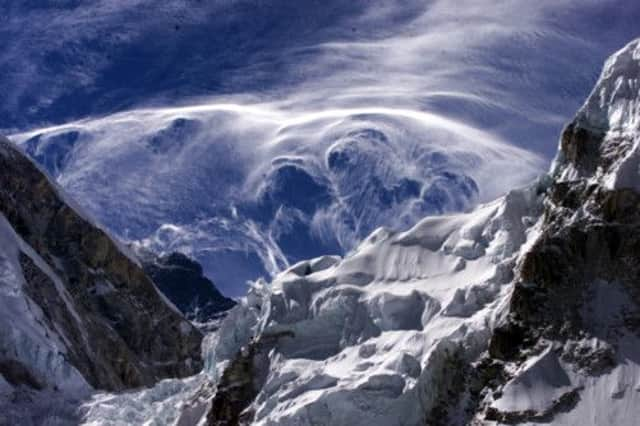Roger Cox: ‘Is Griff Pugh the most ripped off person in exploration history?’


As it turned out, though, the whole shebang was beset by PR disasters from start to finish. Most obviously there was the bout of high-altitude fisticuffs between three European climbers and a group of Sherpas just a few weeks before the big day, which rather dented Everest’s image as a sort of GORE-TEX-sponsored UN - a place where wholesome, slightly malodorous folks from all over the world can come together to work towards a common goal in peace and harmony. Then the Indian and Nepalese armies went and cleared four tonnes of rubbish from the mountain, highlighting the fact that the wealthy tourists who climb here don’t tend to “bag it and bin it” quite as fastidiously as they might back home.
But perhaps the most serious damage to the Everest brand was done by the revelation that two of the supposed heroes of ‘53 - summiteer Sir Edmund Hillary and expedition leader Sir John Hunt - had chosen to almost completely ignore a key member of their team in their official accounts of the 1953 climb. As Q is to James Bond, so the physiologist Griffith Pugh was to Hillary and Tensing. He designed everything from their super-warm, super-light boots to their tents, mattresses and cooking stoves, and - crucially - his research into how the human body works at high altitude meant that the climbers knew all about the importance of hydration and acclimatisation, as well as the optimal amounts of oxygen to use in the final stages of their ascent. Had the Swiss Everest expedition of 1952 had the benefit of Pugh’s expertise, it’s likely they would have made it to the top first and the big “Everest at 60” party would have taken place 12 months ago, mostly in Geneva. Yet, for reasons we will probably never know, Hunt and Hillary decided against giving Pugh the credit he deserved.
Advertisement
Hide AdAll of which got me thinking: is Pugh, in fact, the most ripped off person in the history of exploration and adventure? Has anyone more deserving of praise for achievements in the field ever been so comprehensively done over on his or her return home? It’s a struggle to think of anyone who has been shafted to anything like the same degree, but a trawl of the section of The Scotsman’s archives marked “derring do” throws up a couple of contenders. One is John Rae, the Scottish explorer who solved one of the great puzzles of his day when, in 1854, he found out what had happened to Franklin’s lost expedition of 1845 (they’d eaten each other), but was subsequently ostracised by polite society for daring to tell the truth. The other is John Hanning Speke, the mild-mannered Englishman who discovered the source of the Nile - more or less - when he stumbled on Lake Victoria in 1858, but whose theories were rubbished back in Blighty by Richard Burton, the jealous leader of the expedition he was part of. Do let me know of any other contenders for this dubious honour - I’ll choose a winner on a whim and then fail to report my decision in a future issue.
Remember last week’s column? All that stuff I said about how adventuring nowadays should be less about following the herd and more to do with creativity and coming up with novel ways of challenging yourself? Well, two Edinburgh teachers are about to set off on an epic, multi-disciplinary journey from the south coast of Scotland to the north, never deviating more than a kilometre from a single grid line, the 93rd easting. Sean Fallon, a PE teacher at Woodlands School in Currie, and Darren Burns, a PE lecturer at Edinburgh College, have selected the 93rd easting as their guide on this adventure, and - as eastings go - it’s a pretty decent pick. Starting at Mersehead Nature Reserve on the Solway Firth, their route will see them bike through Mabie Forest, swim the rivers Clyde and Spey, hike through the Cairngorms and the Ochils and kayak across the Moray Firth. They intend to start out next Saturday, and hope to arrive at Redpoint in Caithness 18 days later.